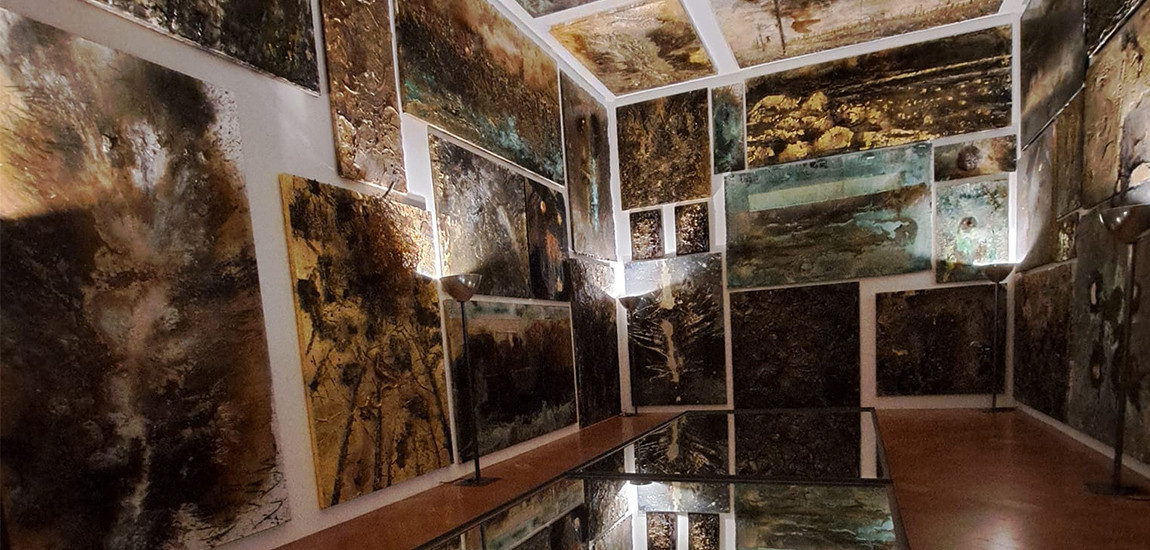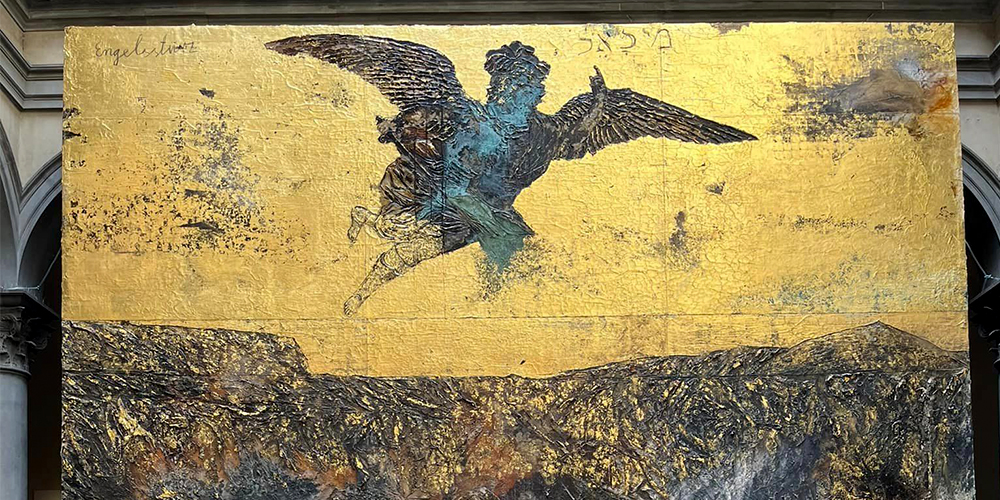
Anselm Kiefer: Fallen Angels at Palazzo Strozzi
There is still time to go and see
the exhibition Anselm Kiefer: Fallen
Angels at Palazzo Strozzi and we warmly invite you to do so.
As soon as you’ll enter the
courtyard you’ll find yourself admiring Englessturz (The Fall of the Angel),
an enormous seven-metre-high multi-material installation that covers an entire
side of the internal portico of the palace.
The lower part of the work's surface
is covered with various types of clothing (trousers, shirts, jackets), made
rigid with a special treatment and inserted into the work to create a texture.
In the upper part, an angel, Saint Michael, is suspended within a gold
background, depicted as he chases the rebel angels out of Paradise, as described
in the texts of the Apocalypse. A struggle between good and evil, between
spiritual and earthly. It represents all of humanity and its dramas, told in
the characteristic style of the German artist.
Kiefer reproduced the rooms of
Palazzo Strozzi on a 1:1 scale in his Paris studio to decide exactly how to
arrange the works on display. The obsessive attention to detail was certainly
worth it, the setup is spectacular and visitors to the exhibition will be
enchanted by it.
His enormous and visually impactful
works immediately establish a strong connection with the viewer. They are works
made of stratifications of materials, such as lead, seeds, flowers, earth, wax,
sand, ash and fabrics.
The artist does not like to depict
figures, but rather places where human dramas happened, apocalyptic scenarios,
made of consumed, crumpled and burnt matter.
The colors he prefers are earthy hues, gold
and copper green, linked to oxidation processes.

A room that truly takes your breath
away is no. 6, where we find the imposing installation entitled Verstraihlte
Bilder (Irradiated Paintings), made up of 60 works that cover the walls
and ceiling and are reflected on the table in the center of the room, arousing
a sense of vertigo in the viewer. The paintings are actually "irradiated"
in some way, subjected to processes that accelerate the natural transformation
of the materials: the artist leaves the canvases outdoors exposed to the
elements and solar radiations, buries them, sets them on fire, immerses them in
acids, subjecting them to electrolysis. All treatments whose effects are
visible only with the passing of time. The pictorial surface begins to discolor,
oxidize and deteriorate. A powerful and concrete testimony of how much damage
human beings can do to the planet and to themselves.
Kiefer's art, just like life, is
constantly evolving and constantly transforming, therefore his works are never
to be considered as finished, because they contemplate an evolution over time. They are poetic works, which reflect
on history, theology, life, and inevitably make us stop and reflect with them.



